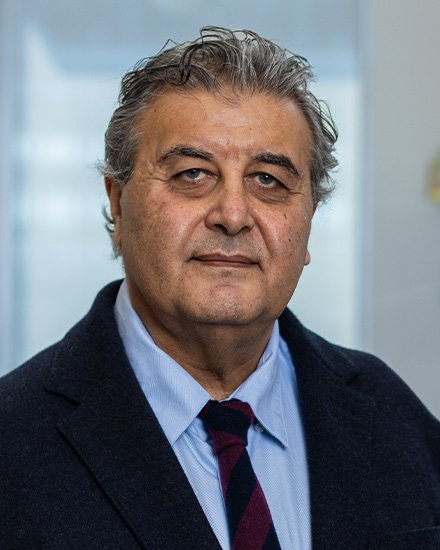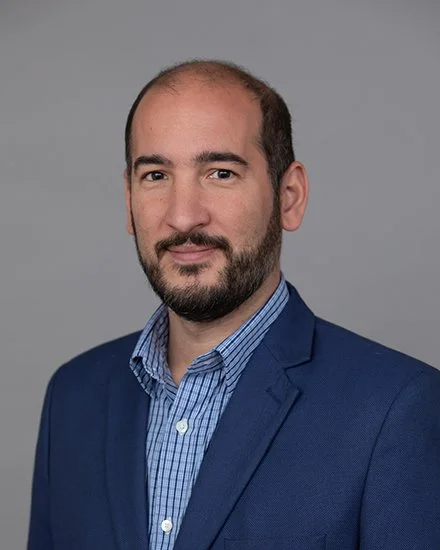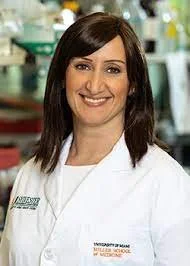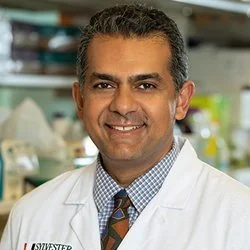Your Donations at Work:
Our Partnership:
Starting in the year 2020, the Castaways have partnered with Sylvester Comprehensive Cancer Center of the University of Miami Health System. Commonly known as “Sylvester,” at time of our partnership it was one of only two NCI-designated* centers in Florida (and 1 of 71 nationwide). In 2022, the Castaways and Sylvester pledged a 5-year partnership to raise $1.5 million dollars which will be directed to funding cancer research.
Sylvester will be matching every dollar we raise (!!) tremendously boosting our impact, while keeping our money local, contributing to research, all with minimal operating costs. Additionally, they will be providing us with reports to see how our money is being put into action which we will be sharing with you, our supporters.
*An NCI-designated cancer designation speaks to the success they’ve had in cancer research and gives them access to cutting-edge clinical trials available exclusively at NCI-designated cancer centers.
Projects Currently Funding:
Epigenetics: Pediatric Cancer - Ewing Sarcoma
PI: David Benner Lombard, M.D., Ph.D., University of Miami’s Sylvester Comprehensive Cancer Center
$150,000 donation will be made in October 2024.
A major focus of our lab is Ewing sarcoma (EWS). EWS is a cancer arising in bone and soft tissue of children and young adults, which is always fatal if not treated. Currently, EWS is treated with a combination of chemotherapy, radiation, and surgery, which can even include limp amputation for some patients. EWS treatments have severe long-term side effects for survivors: accelerated coronary artery disease, heart damage, cognitive problems, and even second cancers. Worse still, patients with metastatic or recurrent EWS have a very poor prognosis, and most will die of their disease. Therefore, there is an urgent need to develop effective new EWS therapies, to cure patients with metastatic cancer, and to avoid the negative consequences of current treatments.
EWS cells possess a unique protein called EWS-FLI1, which is made from a gene fusion that occurs in EWS. EWS-FLI1 functions by binding DNA and turning on expression of genes important for the cancerous properties of EWS cells. EWS cells absolutely depend on EWS-FLI1 for their survival and growth -- if EWS-FLI1 is lost, EWS cells die. Unfortunately, despite intensive research, no means of directly blocking EWS-FLI1 itself has as yet been identified. EWS-FLI1 is a very appealing target for EWS treatment, since normal cells do not possess any EWS-FLI1. Therefore, therapies directed against EWS-FLI1 would likely be very effective at killing EWS cancers, but exert few negative side effects in normal cells and tissues.
Our group studies a protein called SIRT5, which removes a chemical modification called succinylation from its target proteins. Remarkably, we find that SIRT5 regulates succinylation on EWS-FLI1 itself in EWS cells. This effect of SIRT5 is critical for the function of EWS-FLI1. When we inhibit SIRT5, many genes that are normally turned on by EWS-FLI1 are turned off. Crucially, EWS cells lacking SIRT5 rapidly die. Further discovering the details of this SIRT5/EWS-FLI1 link is the focus of our efforts. We think this work is very promising, since it may provide the first practical means to target EWS-FLI1 itself to treat EWS.
To start to bring our basic science findings to the clinic, working with chemists, we have developed new small molecules that block SIRT5 function. When we administer one of these SIRT5 inhibitors to mice with EWS tumors, the cancers stop growing and melt away, while the mice remain healthy. We have recently determined exactly how these inhibitors attach to SIRT5, and based on this knowledge, we are making new, better versions that bind more tightly to SIRT5, in the hopes of making even more effective anti-EWS therapies. We are also beginning to explore roles for other SIRT5-like proteins as targets to kill EWS cells.
Crucially, normal cells and whole mice lacking SIRT5 are healthy. Our work may provide an approach to kill EWS cancers, with little impact on normal tissues, by inhibiting SIRT5 and thereby blocking EWS-FLI1 function. Our long-term goal is to develop new effective treatments for EWS, to spare children with this cancer from the devastating side effects of current treatments, and to save those with recurrent or metastatic EWS, who now too-often succumb to their disease.
Epigenetics: Targeting BRAF & EGFR Mutations in Cancer: Novel Therapeutic Approaches & Challenges
PI: Ramin Shiekhattar, Ph.D., University of Miami’s Sylvester Comprehensive Cancer Center
$150,000 donation will be made in October 2024.
Original Abstract:
Activating mutations in, BRAF and EGFR are the underlying cause of many deadly human cancers. A missense mutation in these genes causes cancers of diverse origins including a large number of lung and skin cancers. The general signaling pathway affected by these mutations, the mitogen-activated protein kinase pathway (MAPK signaling), is a major target of drug design by pharmaceutical companies. However, this approach has been hindered due to the rapid emergence of drug resistance in nearly all cases. To tackle this important human disease there is a need for new groundbreaking unconventional approach to cancer treatment. We propose to establish a new modality for treating these cancers, which we refer to as "Initiation of Transcription Interference or INTi". We believe this plan will be applicable to a wide spectrum of human diseases.
Our proposal centers on our discovery of the functional importance of critical checkpoints during transcriptional initiation mechanisms regulating tissue and disease-specific transcriptional start sites. Aberrant regulation of transcriptional initiation is a key event in the genesis and progression of cancer. We aim to target disease-induced oncogenes to silence cancer-causing genes as a treatment in cancers induced by activating mutations in cancers displaying resistance to targeted therapy. We will develop derivatized anti-sense oligonucleotides (ASOs) that will neutralize the oncogenic transcripts in vivo allowing for disease-specific inhibition of pathogenic gene expression in cancer.
Epigenetics: Chromosomal Regulation in Leukemia & Breast Cancer
PI: Martin A. Rivas, Ph.D., University of Miami’s Sylvester Comprehensive Cancer Center
$150,000 donation was made in October 2023.
Original Abstract:
Regulation of transcriptional programs and gene expression is tightly controlled at the epigenetic level. Chromosomal architecture has arisen as a hierarchical epigenetic regulator by physically segregating transcriptional domains into active or inactive compartments. Such regulation is performed by the cohesin complex and by the transcription factor CTCF. The research program of my laboratory focuses on how chromosomal architecture regulates physiological and pathological mechanisms during cancer initiation and progression. The overarching goal of my research is to elucidate the chromosomal architecture mechanisms driving malignant transformation, as a way to identify actionable therapeutic targets in cancers with alterations of the nuclear topology. Some projects related to this overarching goal will explore:
i) Oncogenic role of PDS5B and CTCF mutations in B-cell development and lymphoma. Ongoing work explores how mutations in cohesin unloader PDS5B and CTCF can affect humoral immunity and impair immunoglobulin-producing plasma cell differentiation. We are also assessing the tumor suppressor function of CTCF haploinsufficiency and the oncogenic potential of R289H mutation of PDS5B in combination with lymphoma oncogene.
ii) Functional role of cohesin mutations in pediatric acute megakaryoblastic leukemia (AMKL). Mutations in cohesin are a hallmark of Down Syndrome-related AMKL, occurring in the transformed phase of the disease but not in the transient abnormal myelopoiesis. However, functional implications of cohesin mutations in AMKL transformation has not been systematically explored. This project uses animal models and genome editing to produce isogenic systems to address these questions.
iii) Role of cohesin and chromosomal architecture during the metastatic dissemination of breast cancer. Metastatic dissemination involves plastic changes in cell phenotype, in particular, during the epithelial-to-mesenchymal transition that enables cell seeding and colonization of secondary sites. This project explores the involvement of cohesin and 3D genome topology during the process of EMT. Given the universality of these molecular mechanisms, we anticipate that these findings could be extensible to other cancer types, increasing the translational potential and impact of our research.
Epigenetics: Blood Cancer
PI: Luisa Cimmino, Ph.D., University of Miami’s Sylvester Comprehensive Cancer Center
$150,000 donation was made in October 2023.
$100,000 donation was made in October 2022.
August 2023 Update:
Vitamins play an essential role in keeping our immune system healthy by maintaining normal blood cell production. Certain types of vitamins can also help in the prevention and treatment of blood cancers. Vitamin A in the form of retinoic acid has been used for decades to treat a subset of blood cancer patients with defects in a protein that relies on vitamin A for its normal activity. More recently, our work has shown that vitamin C can also stop blood cancers from forming, and slow cancer growth, by maintaining or restoring the activity of a protein known as TET2. Loss of TET2 function causes an increase in the growth of blood cells that drive cancer development. Mutations in TET2 that lower its activity are frequently found in patients with blood cancers. TET2 is also frequently defective in the blood cells of the healthy elderly population that can put them at a much greater risk of developing a blood cancer. The goal of our work is to understand how we can maintain TET2 activity to prevent and block cancers of the blood. Vitamin A treatment has recently been shown to increase TET2 levels in cells, which in combination with vitamin C restores TET2 activity more than either treatment alone to stop the growth of blood cancer. Our goal in this study is to model combination treatment strategies of vitamin A and vitamin C to prevent blood cancer formation and growth that can be used as a potential therapy to treat blood cancer patients with a loss in TET2 activity.
May 2023 Update:
Research funded by the Castaways in the Cimmino Lab has contributed to an NIH National Cancer Institute funded 5 year grant of $1.25 million to determine how to enhance the activity of a tumor suppressor, TET2, for the prevention and treatment of blood cancers.
The success of this project in gaining federal funding allows us to expand upon this research, which could only have been possible thanks to the generous donation from the Castaways.
Orginal Absract:
My research is focused on understanding how epigenetic dysregulation, such as aberrant DNA methylation, drives blood cancer progression, and whether these epigenetic alterations impart vulnerabilities that can be targeted for therapeutic intervention. Dietary nutrients such as vitamins and amino acids influence blood cell production by participating as acceptors and donors of one-carbon metabolism, and as cofactors of epigenetic enzymes that write and erase DNA methylation in the mammalian genome. Using cellular and animal blood cancer models, coupled with high-throughput genomic and chemical screening approaches, our studies have revealed several combinatorial treatment strategies that can be implemented to enhance existing therapies for the treatment of myeloid leukemia. We also show that aberrant DNA methylation in blood cancer cells can be targeted therapeutically through dietary intervention by altering micronutrient supplementation. These studies reveal potentially novel strategies to therapeutically target epigenetic dysregulation for the prevention and treatment of blood cancers.
Epigenetics: Breast Cancer
PI: Lluis Morey, Ph.D., University of Miami’s Sylvester Comprehensive Cancer Center
$100,000 donation was made in October 2022.
May 2023 Update:
Our lab investigates the epigenetic dependencies and vulnerabilities in endocrine-sensitive and endocrine-resistant breast cancer, with the goal of identifying novel therapeutic targets and mechanisms to improve the overall survival of patients with breast cancer.
Original Abstract:
The overarching goal of our lab is to identify effective therapeutic strategies to improve the overall survival of patients with metastatic breast cancer, a disease that will claim the lives of 500,000 women across the world every year. The incidence of invasive breast cancer has been increasing since 2004, with more than 2 million cases reported worldwide in 2022. More than 290,000 U.S. cases will be diagnosed in 2022. Fortunately, due to improvements in screening, diagnosis, and treatment, the mortality rate of invasive breast cancer is decreasing in recent years. Treatment differs between the molecular subtypes of breast cancer which are defined by gene expression and clinically approximated by the evaluation of biological markers, primarily the hormone receptors ER (estrogen receptor) and PR (progesterone receptor), as well as the epidermal growth factor receptor HER2. Based on expression of these receptors, breast cancer can be classified into five major molecular subtypes: luminal A, luminal B, HER2-enriched (HER2e), basal-like, and normal-like. In contrast, basal-like breast cancers do not express ER, PR, or HER2, and are therefore referred to as triple-negative breast cancer (TNBC). In ER+ breast cancer, endocrine therapy has proven successful in the treatment of hormone-responsive breast cancer since its early adoption in the 1940s as an ablative therapy. Despite the efficacy of endocrine therapy, resistance arises in about 30% of patients with early-stage disease and in almost all patients who develop metastasis, leading to poor clinical outcome. Overcoming these outcomes is a major challenge in the ER+ breast cancer therapeutic arena. In our efforts to identify new potential therapeutic targets, we discovered that the epigenetic complexes CoREST and Polycomb are key determinant of resistance to endocrine therapies in breast cancer. Notably, genetic, and chemical inhibition of CoREST and PRC1 complexes, inhibit proliferation, primary tumor, and metastasis of endocrine resistant breast cancer and TNBC. We are currently investigating the CoREST and PRC1-mediated molecular mechanisms that lead to oncogenesis in breast cancer. With the support of Castaways Against Cancer, our research program will reveal novel potential therapeutic options for treating metastatic breast cancer patients.
Epigenetics: Blood Cancer associated alterations that occur in the nuclear export protein, XPO1
PI: Justin Taylor, M.D., University of Miami’s Sylvester Comprehensive Cancer Center
$100,000 donation was made in October 2022.
May 2023 Update:
The funding from the Castaways Against Cancer has been critical to moving forward the research of the Taylor lab on developing new therapies for blood cancers. Last winter we published a research article “Combination venetoclax and selinexor effective in relapsed refractory multiple myeloma with translocation t (11; 14)” in Nature Precision Oncology. This translational laboratory research led to the development of a clinical trial that is now open at Sylvester Comprehensive Cancer Center (ClinicalTrials.gov Identifier: NCT05530421). We also presented our research on “Kinase Dead BTK Mutations Confer Resistance to Covalent and Noncovalent BTK Inhibitors but Are Susceptible to Clinical Stage BTK Degraders” at the American Society of Hematology Annual meeting in New Orleans, LA. This research is now being submitted for publication and is being tested in clinical trials across the country (ClinicalTrials.gov Identifiers: NCT04830137, NCT05131022). With the continued support of the Castaways Against Cancer we are launching several new research projects that will hopefully translate into new approved therapies for patients with blood cancer. Finally, Dr. Taylor received the Mentor of the Year award from the Department of Medicine at the University of Miami Miller School of Medicine.
Original Abstract:
New therapies for patients with cancer who have relapsed after standard treatment is an urgent unmet need. Alterations of the nuclear export protein XPO1 in cancer include mutations and overexpression and are particularly seen in blood cancers. We have previously observed high expression of XPO1 in patients with acute myeloid leukemia (AML) and myelodysplastic syndromes (MDS) that is associated with worse outcomes. We are trying to understand one of the mutations that occurs in XPO1, which is important for an essential cellular process called nuclear export, but it is unclear how these mutations lead to cancer. Our preliminary data identify that mutant XPO1 is more sensitive to anti-cancer drugs that inhibit nuclear export by binding XPO1. We have also identified mutations in the splicing factor gene SF3B1 as predicting sensitivity to the clinical use of the FDA-approved XPO1 inhibitor selinexor. We hope that research into the process by which these mutations lead to sensitivity to XPO1 inhibition will help us to discover better ways to provide treatment to patients whose cancer is found to have XPO1 or SF3B1 mutations (which are common in leukemias) or to a broader group of patients by using combination therapies.
Targeted therapies that selectively inhibit XPO1 are approved for use in related blood cancers such as multiple myeloma and lymphoma but have not yet successfully been developed in leukemia and MDS. Furthermore, animal models and detailed mechanism of action studies are lacking, potentially slowing the translation towards new clinical therapies and combination therapies for patients. To address these problems, we will also investigate whether XPO1 inhibition perturbs RNA export and how that affects gene expression, splicing, and translation given the known role of XPO1 to export certain messenger RNA, small nuclear RNA, and ribosomal RNA species via RNA-binding proteins. Lastly, we will use our models to test potential targets for combination with XPO1 inhibition in an unbiased manner. This is directly relevant to advancing progress towards cures for cancer and dramatically improving the mortality of leukemias and myelodysplastic syndromes. Funding from the Castaways Against Cancer will greatly impact our research to speed these discoveries and can be expected to have a direct and significant positive impact on the field of precision medicine in AML and MDS.
Projects Funded in the Past:
Lymphoma research
PI: Jonathan Harry Schatz, MD, University of Miami’s Sylvester Comprehensive Cancer Center
$110,000 donation was made in August 2021.
*Here is an article from the BBC on successful work in the same field as Dr. Schatz’s research. Amazing and heartwarming story demonstrating the research being done here is valuable.
May 2023 Update:
Here is the link to an article announcing how Dr. Schatz received a $1.5 million award from the U.S. Department of Defense Office of Congressionally Directed Medical Research Programs based on his finding on this research project. This provides a great update on his incredible progress.
September 2022 Update:
We are using Castaway funds to support a project to better understand and improve responses by aggressive lymphoma tumors to a new type of immunotherapy called chimeric-antigen receptor (CAR)-T cells. These innovative therapies take immune cells from individual patients and reprogram them to attack their tumors. Reinfusion of these cells will lead to responses in many patients lacking other treatment options, and 30-40 percent will experience long-term remissions. Reasons for failed treatments in other patients are poorly understood and are an intense area of research in the field. We recently published data on the genomes of lymphoma tumors treated with CAR-T cells and found striking findings that associate with responses. Now we must perform laboratory studies to understand how these findings drive treatment resistance.
We therefore are using laboratory model systems to carry out functional studies of specific changes to the genome. We believe specific alterations cause tumors to promote cellular environments in which they are protected from immune cells that otherwise would be able to target and eliminate them. A specific tumor-suppressor gene called RHOA is a major focus of current studies. We have modeled genomic deletion of RHOA that is seen in patients with tumors resistant to CAR-T cells and find specific reprogramming of gene expression by tumors that is hostile to their efficacy. Next, we are moving these studies into mouse models so that we capture better overall pictures of immune function and test efficacy of CAR-T cells in way that can inform the treatment of patients once mechanisms are defined. We already have used data generated with Castaways support to apply for a large grant from the National Cancer Institute and are planning multiple additional applications for external funding. Castaways’ support has been instrumental in getting these highly clinically relevant research studies off the ground.
Original Abstract:
Dr. Schatz’s work focuses on the non-Hodgkin lymphomas, a group of more than 60 cancers arising from B and T lymphocytes. He seeks to identify and understand the molecular mechanisms that cause resistance to specific therapies, causing treatment failures in patients. Current work includes targeted therapies, immunotherapies, and traditional chemotherapies. By understanding resistance at a core molecular level, Dr. Schatz hopes to develop new treatments that overcome these barriers to better outcomes for patients.
Establishing a CHIP clinic for early cancer detection.
PI: Dr. Namrata Sonia Chandhok, MD, University of Miami’s Sylvester Comprehensive Cancer Center
$110,000 donation was made in August 2021.
May 2023 Update:
Greetings! I am writing to express my heartfelt gratitude for the generous funding you provided for my cancer prevention research project. As a reminder, I have been working on developing a program to study clonal hematopoiesis, or CH. CH is a condition where a group of cells in an individual’s bone marrow, responsible for producing blood cells, starts behaving differently than normal. Because of this, a small population of cells can become dominant, and in some cases can lead to development of various blood cancers. Not everyone with these abnormal populations will develop a cancer, and in collaboration with large research groups across the country we are working to identify those who are at the highest risk of progressing to a blood cancer. I am a leukemia specialist, and therefore my primary interest is to better understand which patients are at high risk for develop myelodysplastic syndrome and acute myeloid leukemia. We know that many people who receive chemotherapy for other diseases are also at high risk, and therefore I am working with specialists in different disease groups to help reduce the risk of developing this disorder. Your support has led to an established CH clinic at UM where we can evaluate patients who are at high risk for blood cancers and other disorders, and with their permission use their blood samples to understand changes we can make to reduce their risk of disease. We will also offer clinical trials to reduce these abnormal populations of cells.
The importance of cancer prevention cannot be overstated. By investing in research that focuses on preventing cancer, we have the opportunity to make a profound impact on countless lives. Your support has been invaluable in advancing my efforts to help prevent these devastating diseases that are traumatic for patients and caregivers alike.I am honored to be associated with an organization that not only recognizes the significance of cancer research but actively takes steps to make a difference. Your generosity and compassion serve as an inspiration to continue my work with renewed passion and dedication.
September 2022 Update:
I would like to take this opportunity to thank you again for your generous support for our research efforts. As you may recall, I am a leukemia physician and my research is focused on treatment of these blood diseases with innovative, as well as identifying preventative measures to prevent cancer development. The grant funding provided by your efforts has helped establish a clonal hematopoiesis clinic that is now clinically active and I am currently seeing patients with precancerous mutations. With the support of patients with these mutations, we are analyzing blood samples, and occasionally bone marrow biopsy samples, to identify patterns that may be important to predict cancer risk. In the future, we also hope to provide treatment modalities that lower the risk of cancer development. We have also created collaborations with major cancer centers across the country to accelerate these efforts, and further magnify the results that will stem from your contributions.
Original Abstract:
In addition to developing cutting-edge therapies to improve the lives of patients affected by cancer, our aim is to stop cancer before it starts. Increasing age, certain exposures, and common illnesses can lead to genetic mutations in the stem cells that produce blood. These mutations can lead to the development of abnormal blood cell populations known as “clonal hematopoiesis”. Clonal hematopoiesis has been linked to serious health problems like heart disease and the development of blood cancers like myelodysplastic syndrome and acute myeloid leukemia in some patients.
Your generous contribution to Sylvester Comprehensive Cancer Center will help us establish a clonal hematopoiesis clinic to screen patients at high risk for these abnormal blood cell populations, employ known risk reduction strategies to prevent life-threatening illness in these patients, and develop new cancer prevention strategies.
Computational Approaches for Identifying Effective Treatments for Pediatric Brain Tumors
PI: Zane Zeier, PhD., University of Miami’s Sylvester Comprehensive Cancer Center (Former PI: Nagi Ayad, Ph.D.)
$100,000 donation was made in August 2020.
Dr. Ayad’s update on Jan 15th, 2021 (video below)
November 2021 Update: Click here
Original Abstract:
Medulloblastoma (MB)is the most common pediatric brain tumor. MB standard of care includes surgery, followed by radiation of the brain and spinal cord, and adjuvant chemotherapy. Although survival benefit occurs for some patients after standard-of-care treatment, several deficits persist. Treatment sequalae include neurocognitive impairments, mutism, and hearing loss, as well as secondary malignancies that arise. Importantly, some patients are resistant to conventional therapy. Thus, there is considerable interest in identifying new therapies for treating MB patients. MB has been classified into four major subgroups: WNT, SHH, Group 3 and Group 4, each with its own histology, molecular drivers and prognoses. We have recently developed a computational pipeline to identify therapeutic combinations in a patient specific manner. This pipeline, termed SynergySeq, allows us to stratify patients based on the tumor makeup. We have used this pipeline effectively for glioblastoma, the most common adult brain tumor, to make predictions that were confirmed in preclinical models. We now would like to apply this same computational pipeline to pediatric brain tumors.
Although some children who suffer from MB go on to lead a healthy life after surgery and radiation, some children do not respond to this treatment and succumb to this disease. Therefore, we are trying to find safe and effective therapies for those patients. One of the main issues with brain tumors is that tumors are made up of many different cells and this makes it difficult to ascertain which cells to try to eliminate with a drug. We have developed a way to find this out based on sequencing each cell individually within MB tumors. We will use novel computational approaches we developed to identify FDA approved drugs to target the cells in medulloblastoma and test these drugs in animal models of MB. These preclinical studies will make way for clinical trials in MB.










